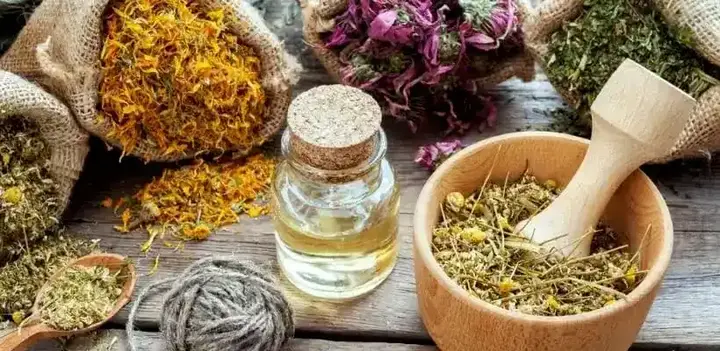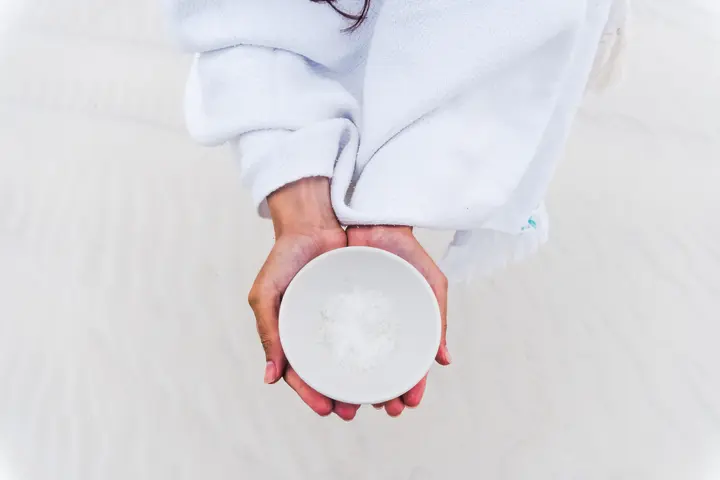Natural remedies supported by science

Natural remedies have been growing in popularity. Many people reading this article may use some form of alternative medicine – or "integrative" as it is now called – so why are so many people so eager to try something else these days? Patients are dissatisfied with the little amount of time and care they receive with their doctors and with the doctors who prescribe pills for each disease. But are these types of "natural" remedies effective? Some actually are, and according to science, these are the most effective natural remedies you can try.
Show key points
- Many people are turning to natural remedies due to dissatisfaction with conventional medical care and quick prescription practices.
- Drinking warm lemon water on an empty stomach may aid digestion, boost immunity, and help prevent kidney stones.
- Honey is a powerful natural antimicrobial that can soothe sore throats, treat wounds, and even help manage coughs.
- ADVERTISEMENT
- Gargling with warm salt water is a simple, science-backed remedy that can ease sore throat symptoms caused by colds.
- Chamomile has long been used to relieve anxiety, insomnia, and depression, with modern studies supporting its calming effects.
- Research suggests that mindfulness meditation not only reduces stress but may also strengthen the immune system.
- Natural remedies like turmeric, lemon peel, and honey can be combined to enhance their individual health benefits.
Lemon and warm water help digestion and prevent the formation of kidney stones

Lemon and water on an empty stomach are the first thing in the morning, usually 20 minutes before breakfast, a popular health stimulant used to aid digestion and boost immunity.
Recommend
Aside from a healthy dose of vitamin C and potassium, there is some evidence that the citric acid found in lemon juice and lemon peel actually helps with many uses, including aiding in digestion and preventing kidney stone formation. Grandma starts her day with a glass of hot (unboiled) water, the juice of half a lemon, and a little (organic) peel. I like adding a spoonful of honey thanks to its antimicrobial properties and a little turmeric to help digestion and reduce inflammation.
Gargling with salt water

When I feel a sore throat, my grandmother asks me to gargle with salt water in the morning and before bed. It turns out that health professionals recommend gargling with salt water, not instead of treatment, but to reduce uncomfortable symptoms caused by diseases such as colds. You can try a teaspoon of salt dissolved in a glass of warm water to soothe a sore throat.
Honey as an antimicrobial

Since ancient times and across cultures, honey has been used to heal wounds and burns, maintain blood sugar, relieve sore throat and cough, treat allergies, and more. Honey is a natural antimicrobial; you can take a spoonful to calm the cough or apply honey directly to burns or clean wounds. It looks delicious!
Meditation as an immune booster

A 2012 study looked at whether mindfulness meditation helps reduce stress, whether through an exercise regimen or in a control group. Participants in the meditation group were more resistant to colds than others, and although more research is needed on the physical side, you can't really go wrong with the mental benefits you'll get too.
Chamomile for anxiety and depression

Chamomile has been used for thousands of years across Europe and other continents to relieve anxiety, insomnia and gastrointestinal complaints, and is also applied topically to soothe skin conditions. The most common type is German chamomile, which was used to make teas, ointments and tinctures. It turns out that chamomile not only relieves anxiety, it may also work as an antidepressant, and its benefits don't stop there.
The best remedy for white (severe) joint pain at night is a bowl of chamomile tea served with a touch of honey.








